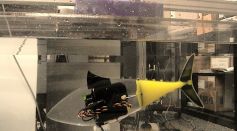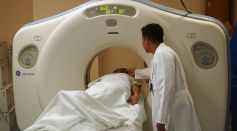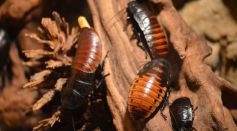TECH & INNOVATION

Robotic Capsule May Replace Medications Administered Through Injection Like Insulin

Scientists Created a Method To Assist Soft Robots in Moving Through Tight Spaces

A Kyiv Start-up Company Recreated Darth Vader’s Voice Through AI Voice Cloning

Sailing Against Raging Storms: AI-Powered Marine Robot Saildrone Built To Collect Hurricane Data and Improve Forecasting

“Antimicrobial” Is Everywhere, But It’s Not Created Equal

Scientists Designed a Nanozyme that Mimics Antioxidant Properties that Protects the Bones from Radiation

Scientists Employ Machine Learning Techniques to Estimate the Extinction Risk of Thousands of Palm Species

A Pair of Googly Eyes on the Front of a Self-Driving Car Helps Pedestrians Decide When Crossing the Road

Artificial Intelligence Might Cause Horrific Nuclear War [Study]

Cyborg Cockroach: Inventor Promises To Use New Technology in Search Operation During Natural Disasters

ScienceTimes and Jobbio's Amply Network Announce New Partnership

Possible Impact of Explosion of All Nuclear Weapons; Here's the Scientific Explanation!

Vast Reserves of Lithium Found in Chile’s Atacama Desert; Will Mining It Affect Environment?
Deep Brain Stimulation Can Offer Significant Relief to OCD Patients, Research Suggests
Most Popular

Largest Known Volcanic Aquifer Discovered Beneath Oregon's Cascades

New 'Supergiant' Sea Bug Found in South China Sea, Named After Darth Vader

Mediterranean Sea Was Refilled by a Catastrophic Flood Millions of Years Ago

Mysterious Cosmic Waves That Sound Like Birds Detected in Unexpected Space Region





